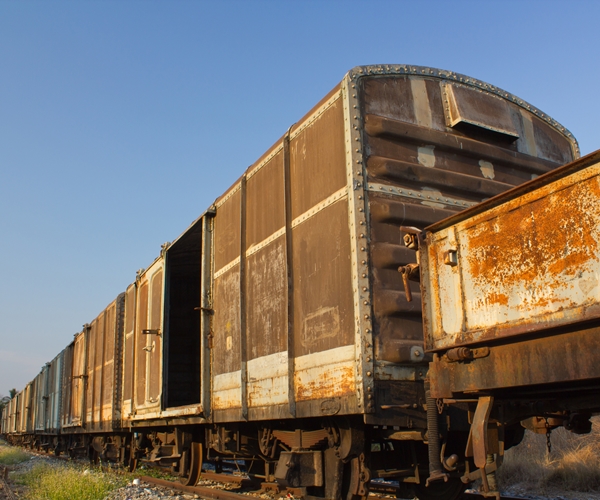The U.S. freight rail system is suffering from its own industry
“recession” as rail cargo volumes tumble amid plunging commodity
prices, CSX Corp. Chief Executive Michael Ward warned.
CSX recently said it expects to deliver lower profits in 2016 as
weak demand for coal and crude oil persists and the strong U.S.
dollar continues to limit exports.
The railroad's forecast for lower freight volume suggests the
overall U.S. economy may be slowing after several years of steady
growth.
"We're calling it almost a freight recession," CSX Chairman and
CEO Ward said earlier this week. "We really think there are some
challenges on the industrial side of the economy,"
he said.
“Grain trains are plentiful partly because of declines in U.S. coal
and oil production that have freed locomotives and crews hauling
those commodities,” the
Financial Times explains. “The strengthening
dollar has also whacked international demand for US coal and grain,
curbing shipments for export,” the FT reported.
Big agricultural commodity traders have been offering as much as
$200 per covered hopper car to anyone willing to sublet their
110-car shuttle trains, the FT reported. “You actually have to pay
someone to take your cars,” says Dan Mack, vice-president of
agricultural transportation and terminals at CHS, a large US grain
merchant.
Railroads are facing stiffer competition from trucks, as low fuel
prices have made hauling containers and trailers cheaper. But
there’s still a 10% to 15% gap between truck and rail pricing, CSX
executives told The
Wall Street Journal. Railroads also now are
offering better and more reliable service, as trains get faster and
spend less time waiting to load and unload.
“You have multiple aspects working against you: the low [natural]
gas prices, the low commodity prices, the strength of the dollar,”
Ward said during an earnings call with analysts. “Except for markets
like automotive and housing related, you’re seeing pressure on most
of the markets.”
Experts who view stocks of railways, trucking companies and airlines
as a barometer for equities investment have taken notice.
“The transports are definitely flashing a big red warning sign,”
Nicholas Colas, chief market strategist at Convergex, a broker. told
the FT.
Meanwhile, the railroad's fourth-quarter results showed an overall 6
percent drop in all shipments. Coal led the decline with a 32
percent drop in carloads, but few sectors showed any growth.
Ward said the railroad will continue working to improve
productivity and cut about $200 million in expenses in 2016.
CSX also plans to reduce its capital spending this year by
$100 million to $2.4 billion and park some older, less-efficient
locomotives that aren't needed.
"2016 will be a more challenging year," Ward said. "Volume in
the first quarter and for the full year will decline as growth
in some markets continues to be offset by the significant impact
of continued coal declines, low commodity prices and a strong US
dollar."
Coal demand has fallen significantly over the past several
years because of environmental concerns and because cheap
natural gas prices prompted some utilities to switch fuels.
Citi analyst Christian Wetherbee said the railroad's results
were better than he expected thanks to tight cost controls.
CSX operates more than 21,000 miles of track in 23 Eastern
states and two Canadian provinces.
(Newsmax wire services contributed to this report).
© 2015 Newsmax Finance. All rights reserved.
